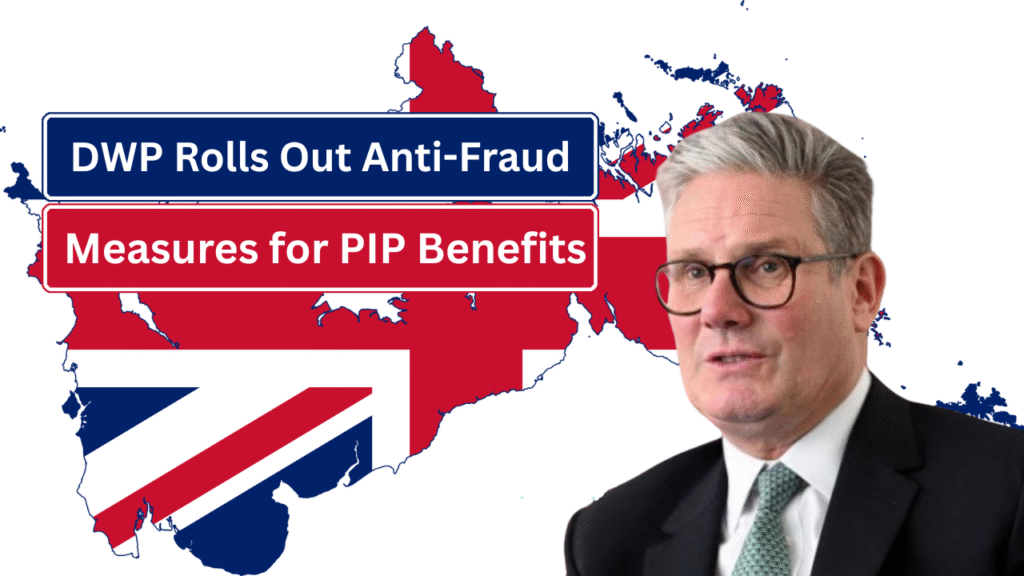The Department for Work and Pensions (DWP) has unveiled a comprehensive strategy aimed at reducing fraudulent claims for Personal Independence Payment (PIP), a benefit designed to assist individuals with long-term health conditions or disabilities. This initiative forms part of a broader government effort to improve the integrity and efficiency of the UK’s welfare system.
Enhanced Data Sharing and Monitoring

A cornerstone of the DWP’s new anti-fraud approach involves closer collaboration with financial institutions. Under proposed legislation, banks and building societies will be required to share data that may indicate breaches in benefit eligibility. The department believes this measure will help proactively detect and prevent fraudulent PIP claims by monitoring financial activity that could suggest a claimant is not entitled to receive support.
In addition, the DWP is seeking powers to recover debts more efficiently from individuals who have the means to repay but are currently not doing so. These powers would allow the government to retrieve overpaid benefits directly from claimants’ bank accounts. The goal is to streamline debt recovery and reduce the growing cost of fraud and error within the welfare system.
Reforming the Assessment Process
In a major policy shift, the government also plans to overhaul the disability benefit assessment framework. Secretary of State for Work and Pensions Liz Kendall has confirmed the department’s intention to scrap the Work Capability Assessment. This assessment will be replaced with a new, single, integrated process aligned more closely with PIP evaluations.
This reformed assessment system aims to create a fairer and more accessible process, particularly for individuals with mental health conditions and neurodiverse disabilities. The changes will be designed with input from disabled individuals and advocacy groups to ensure that the system remains inclusive while preventing misuse.
The DWP hopes this shift will simplify the claims process, reduce bureaucracy for applicants, and ensure that the most vulnerable receive timely support without unnecessary administrative barriers.
Projected Impact and Public Savings
The government estimates that these combined fraud prevention and benefit reform measures could save taxpayers around £1.5 billion over the next five years. These savings would result from improved fraud detection, streamlined benefit assessments, and more efficient debt recovery processes.
The urgency of these reforms is underscored by recent figures, which show that in the financial year ending April 2024, the UK lost £8.6 billion due to benefit fraud and error. The DWP views this as an unsustainable drain on public resources, and these initiatives represent a robust attempt to curb that figure significantly.
By tightening eligibility controls and using data more intelligently, the department hopes to ensure that benefit funds are allocated strictly to those who meet the legal and medical criteria for support.
Safeguards and Oversight
Acknowledging potential concerns over privacy and state overreach, the DWP has assured the public that any data shared between financial institutions and the department will be tightly regulated. Information will only be used for fraud detection, and access will be limited to relevant officials under clearly defined legal safeguards.
Any debt recovery actions involving bank accounts will follow due legal process, with claimants’ rights protected under welfare legislation. The DWP has also committed to enhancing internal oversight and transparency, ensuring that these new powers are applied fairly and lawfully.
Public accountability will be a key part of the rollout, with new reporting mechanisms planned to track the use and effectiveness of these tools.
Conclusion
The DWP’s introduction of new measures to prevent fraudulent PIP claims marks a significant development in the UK’s welfare policy. Through strategic data-sharing partnerships, reform of the benefits assessment process, and more efficient debt recovery tools, the government aims to reduce fraud, protect public finances, and ensure that genuine claimants receive the support they need.
While these proposals are still being debated and refined, their implementation will likely signal a more stringent and data-driven era in welfare administration. Recipients, advocacy groups, and stakeholders are encouraged to stay informed and participate in consultations as the reforms take shape.
For accurate and updated information on PIP eligibility and benefit changes, individuals should refer directly to the official government portals and announcements from the Department for Work and Pensions.




